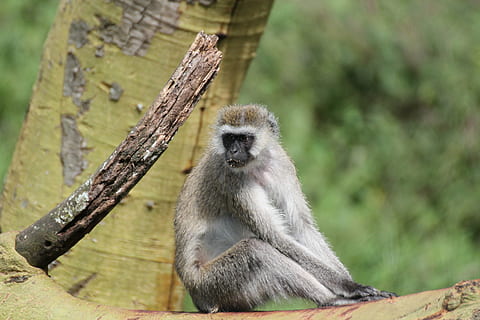International Day of Non-Violence: Rising crimes against animals call for 'Ahimsa' redux
"2020 has seen some of the most horrific incidents of animal-directed violence in India. The only silver lining - if you will - is the wave of backlash that not only sparked awareness for the prevention of animal cruelty, but also a sensibility capable of recognizing mindless and inhumane treatment of animals," writes Varda Mehrotra, the Executive Director of the Federation of Indian Animal Protection Organisations (FIAPO).

- Country:
- India
To opine about the merits of non-violence as a doctrine in a particularly violent year – certainly one of the most graphic starts of a new decade – feels inherently odd. Surely, a year that has seen some of the biggest social movements in response to police brutality, de-facto dictatorships, and of course, a raging pandemic in the foreground highlights the need to internalize a sense of non-violence, does it not?
Yet, as Gandhi Jayanti – internationally recognized as the International Day of Non-Violence on October 2nd, every year - sets in, it makes it clear that to hold a mere day out of 365 as the be-all and end-all of our interaction against the notions of violence and their manifestations in our daily lives is not enough; and it never has been. A recurring motif observed this year is to be better and adapt, or face unmitigated and unforeseen consequences; and thus far we have hedged our bets on the latter.
The first official commemoration having been established on June 15th, 2007 by the UN General Assembly, the International Day is meant to "disseminate the message of non-violence, including through education and public awareness"; and thereby reaffirm "the universal relevance of the principle of non-violence" as well as the need "to secure a culture of peace, tolerance, understanding, and non-violence".
Whilst the wide and unanimous sponsorship of the resolution reflected (and indeed continues to reflect) the universal respect and adoration for Mahatma Gandhi, and of course, the enduring and timeless relevance of his philosophy of Ahimsa (non-violence) - our practical engagement with it makes it seem like an appeasing platitude rather an accepted mode of existence. One needs to only look at the cruelty and violence animals are subjected to see a much more grim reality evolve.
2020 has seen some of the most horrific incidents of animal-directed violence in India – from Saumya the elephant’s cruel and haunting death by eating a fruit laced with explosives; to that of a cow in Bilsaspur’s death in a similar fashion; to a monkey being tortured and eventually being hanged in Telangana – the list, unfortunately, goes on and on. The only silver lining - if you will - is the wave of backlash that not only sparked awareness for the prevention of animal cruelty, but also a sensibility capable of recognizing mindless and inhumane treatment of animals. The mind shudders, however, to imagine the hundreds – if not thousands – of such incidents that occur around the country every day, but don’t go ‘viral’, and are hence never spoken of ever again
Thus, just a day of non-violence is simply not enough, for every day must be one steeped in the very notion. Imbibing a genuine and organic kindness towards animals is crucial, and not just helpful to the animals in question. The way in which we treat our fellow creatures is also a massive stepping stone in contributing to how we treat other people from different walks of life, even if we can’t identify with their experiences.
Animal or human - the sense of empathy, kindness, and respect extended to them is recognized all the same; and the satisfaction of co-operating and merrily co-existing with them ushers in a similar sense of reward and fulfillment. As Mahatma Gandhi himself once said, “I hold that, the more helpless a creature, the more entitled it is to protection by man from the cruelty of man.” An addendum to these impeccable words may also be found in the fact that by helping and fostering fruitful and non-violent relationships with the wealth of animals around us, we also in a way, protect ourselves from the cruelty that we are, and remain forever capable of.
(Disclaimer: Varda Mehrotra is the Executive Director of the Federation of Indian Animal Protection Organisations (FIAPO). The opinions expressed are the personal views of the author. The facts and opinions appearing in the article do not reflect the views of Devdiscourse and Devdiscourse does not claim any responsibility for the same.)
- FIRST PUBLISHED IN:
- Devdiscourse

 Varda Mehrotra
Varda Mehrotra









